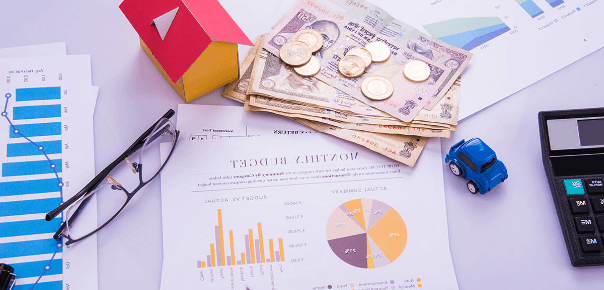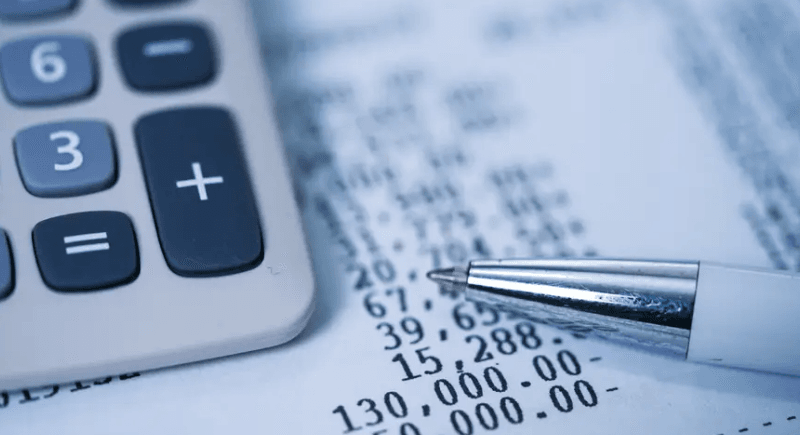Taxes are an unavoidable part of anyone's financial life. However, many do not fully understand how taxes work and how they can affect their personal financial situation. In this article, we will explore the three basic fundamentals you should know about taxes and how they can impact your personal finances.
The importance of understanding taxes
Taxes are an important part of our personal finances and can significantly affect our ability to achieve our financial goals. It is essential to understand how taxes work and how they affect our personal finances in order to make informed financial decisions.
Taxes can have a direct impact on our income, as they are automatically deducted from our wages. In addition, certain expenses may be tax deductible, which can reduce our tax burden and increase our ability to save and invest.
It is also important to understand the different tax rates and how they apply to different types of income. For example, capital income may be taxed at a different rate than earned income.
In summary, understanding taxes is critical to making smart financial decisions and maximizing our opportunities to achieve our long-term financial goals.
What are taxes?
Taxes are compulsory payments made to the state to finance public expenditures and the services it provides to society. They can be direct, such as income tax, or indirect, such as VAT.
Taxes are a form of wealth redistribution, as those with higher incomes pay more taxes than those with lower incomes. In addition, taxes can also be used to incentivize or discourage certain economic behaviors, such as, for example, the consumption of tobacco or alcohol.

It is important to understand how taxes work and how they affect your personal finances in order to properly plan your budget and avoid unpleasant surprises in the future.
Why are taxes important?
Taxes are important because they are a source of revenue for the government, which uses that money to fund public services such as education, health and safety. In addition, taxes can directly affect your personal finances, as they can reduce your disposable income and increase the cost of the goods and services you consume. It is important to understand how taxes work so you can plan your finances effectively and avoid unpleasant surprises in the future.
Types of taxes
There are different types of taxes that can affect your personal finances, among them:
- Direct taxes: these are those that are levied on a person's income or wealth, such as Personal Income Tax (IRPF) or Wealth Tax.
- Indirect taxes: those levied on the consumption of goods and services, such as Value Added Tax (VAT).
- Excise taxes: those levied on certain products or activities, such as taxes on tobacco, alcohol or hydrocarbons.
It is important to know the different types of taxes and how they affect your personal finances in order to better plan your expenses and avoid unpleasant surprises on your tax return.
Direct taxes
Direct taxes are those that are levied on the income or wealth of an individual or business. These taxes are paid directly by the taxpayer and cannot be passed on to another person or entity. Some examples of direct taxes are Personal Income Tax (IRPF), Corporate Income Tax (IS) and Wealth Tax. It is important to know which direct taxes are applied in our country and how they affect our personal finances, since their correct management can contribute to improve our economic situation.
Indirect taxes
Indirect taxes are those levied on the consumption of goods and services, and not on the income or wealth of individuals. Examples of indirect taxes are VAT (Value Added Tax), taxes on fuel, taxes on tobacco and alcohol, among others. These taxes directly affect our personal finances, as they increase the price of the products we consume.

It is important to take these taxes into account when making our budget and planning our purchases. In addition, it is important to know the different exemptions or reductions that exist for some products, as this can help us save money. For example, in some countries there are VAT exemptions for certain basic products such as food and medicines. In summary, indirect taxes are an important part of the tax system and directly affect our personal finances. It is important to be aware of them in order to better plan our purchases and save money.
How they affect your personal finances
Your personal finances are directly related to the taxes you have to pay. If you don't have good tax planning, you could be losing money and affecting your financial situation.
For example, if you don't take advantage of the tax deductions you are entitled to, you will be paying more taxes than necessary. It is also important to consider the impact that taxes have on your investments and long-term financial decisions.
On the other hand, if you do not comply with your tax obligations, you could face fines and penalties that will negatively affect your financial situation. That's why it's critical to understand how taxes work and plan accordingly to minimize their impact on your personal finances.
How to plan your tax expenses
To plan your expenses in relation to taxes, it is important to consider the following points:
- Know your tax payment dates: Learn about tax deadlines and make sure you have the money available to meet your tax obligations.
- Calculate your taxes: Find out how much you owe in taxes and calculate how much money you need to set aside each month to cover these expenses.
- Take advantage of tax deductions: Research which tax deductions apply to your situation and make sure you take full advantage of them to reduce your tax burden.
- Consult with an expert: If you have questions about how to plan your expenses in relation to taxes, consult with a financial expert or CPA.
Planning your tax expenses will help you avoid unpleasant surprises and keep your personal finances under control.
Maximizing your tax deductions
To maximize your tax deductions, it is important to keep good records of your expenses and receipts. This way, you will be able to identify expenses that are tax deductible, such as medical expenses, mortgage interest and donations to charitable organizations.
It is also important to be aware of the tax laws and rules in your particular country or state. For example, some deductions may be limited by your income or the type of work you do.

Another way to maximize your tax deductions is through the use of retirement savings accounts, such as a 401(k) plan or an IRA. These accounts allow you to save money for retirement while reducing your current tax burden.
Remember, it is always important to consult with a tax professional to make sure you are taking full advantage of all the tax deductions available to you.
Avoiding Tax Fines and Penalties
To avoid tax fines and penalties, it is important:
- Keep good accounts of your income and expenses.
- Know the tax laws and comply with your tax obligations.
- Ask for tax advice in case of doubts or complex situations.
In addition, it is important to be up to date with the deadlines for filing tax returns and payments to avoid surcharges and penalties.











